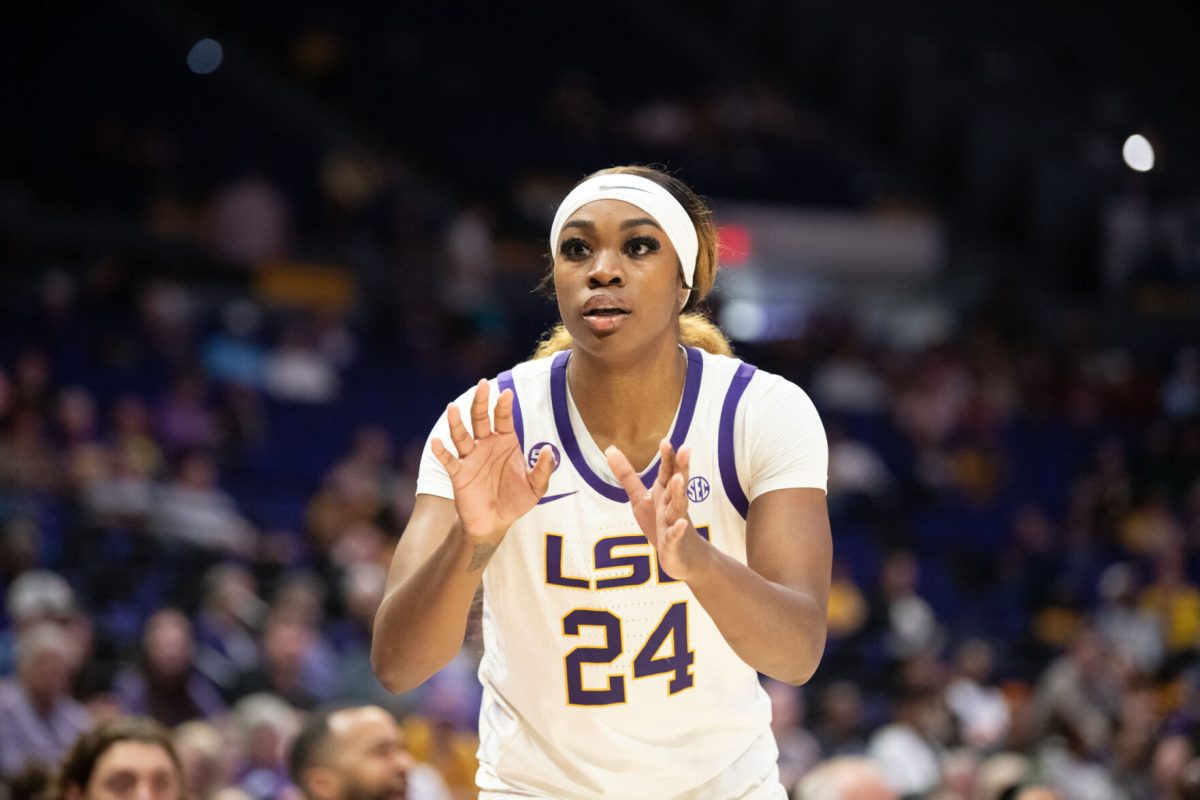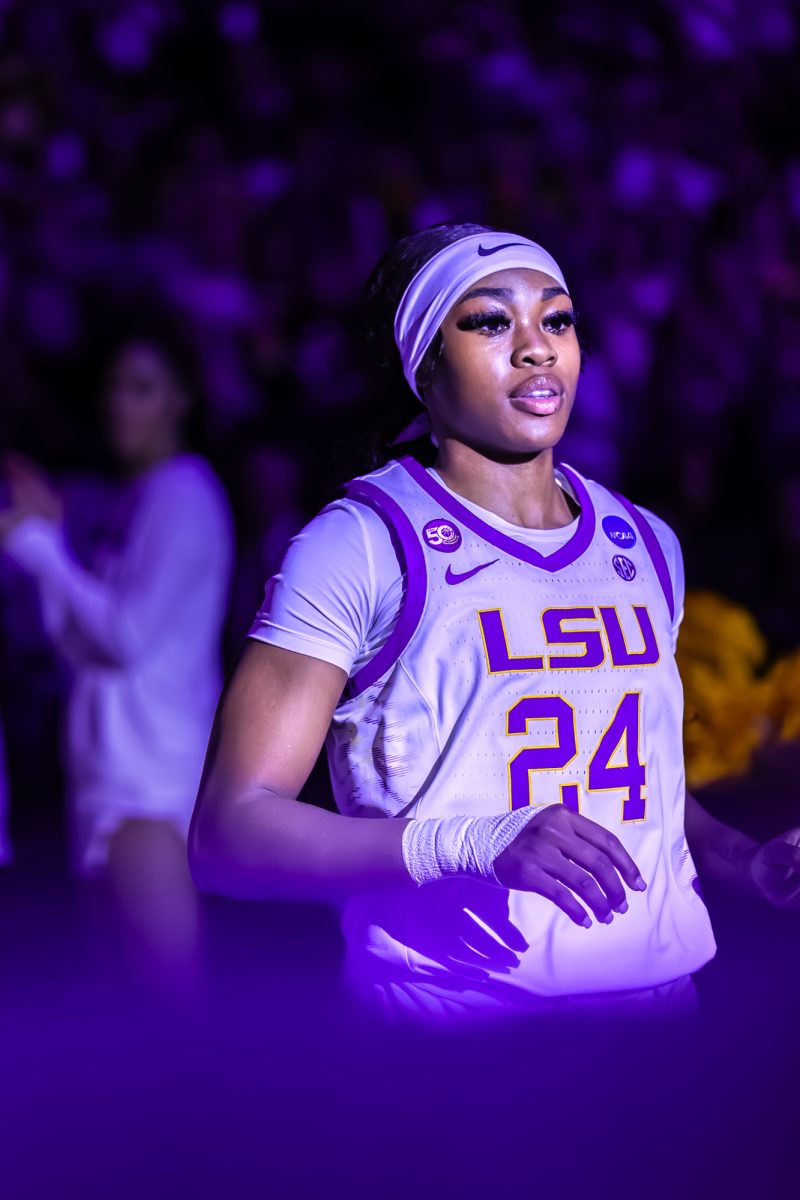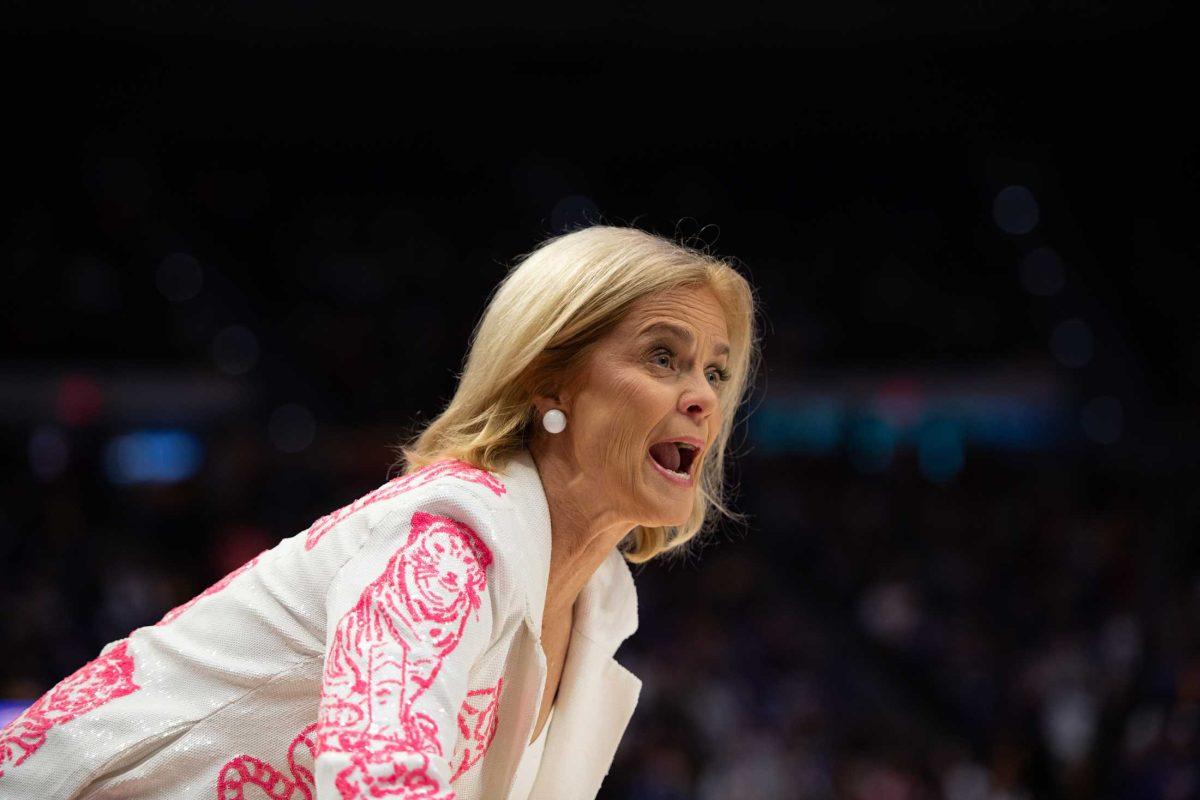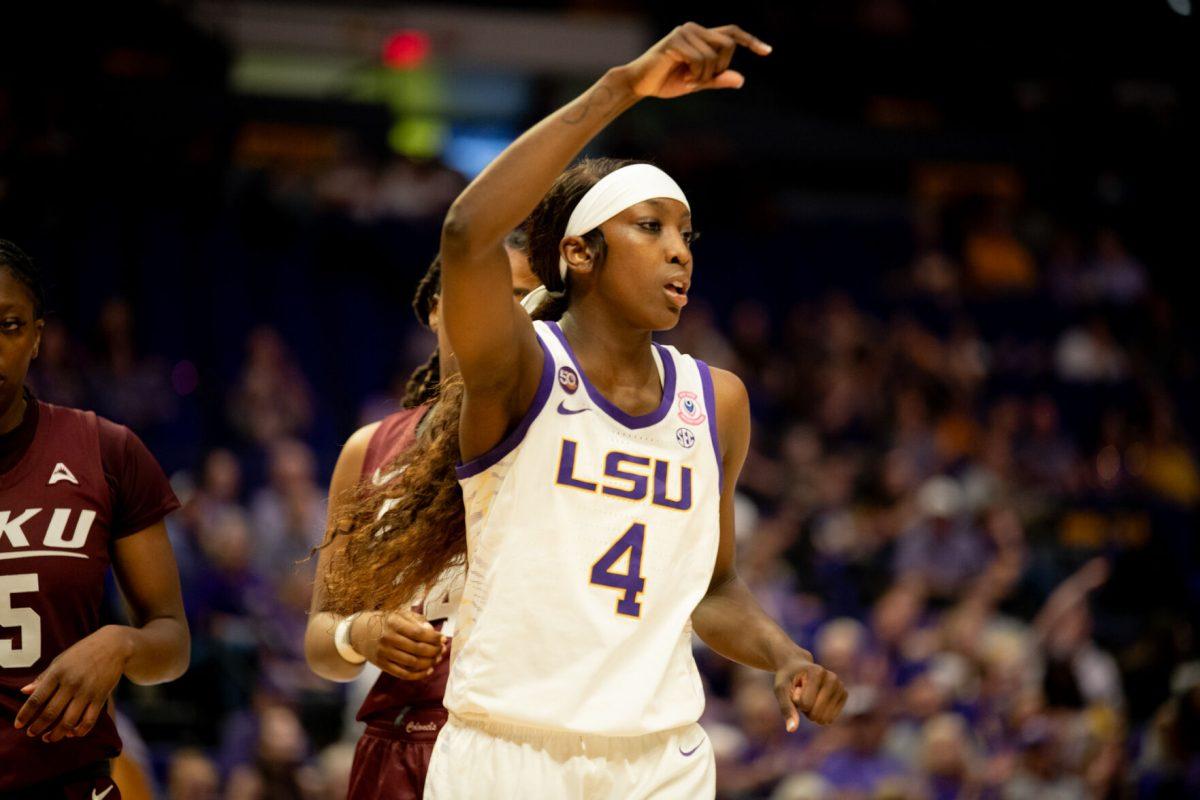When Flau’jae Johnson and Hailey Van Lith spoke their praises of Angel Reese following LSU women’s basketball’s loss to Iowa, tears welled up in her eyes.
Those tears weren’t all because of a season ending loss, or all because that turned out to be her last game at LSU. Those may have been factors, but it was a small representation of all Reese has been through.
And she’s been through a lot, largely thanks to social media.
When Reese makes a tweet, no matter how big or small, millions of people see it. Reese has 416,000 followers on X (formerly Twitter) and 2.8 million followers on Instagram.
But when she makes a post on any platform, people are quick to call her classless, ghetto or other racial remarks. It’s the norm that Reese is forced to live with almost daily.
“I’ve been through so much,” Reese said. “I’ve seen so much. I’ve been attacked so many times, death threats. I’ve been sexualized. I’ve been threatened. I’ve been so many things, and I’ve stood strong every single time.”
Her tears following LSU’s Elite Eight loss were a long time coming. For anyone, looking at insults time and time again, and having to keep putting on a face and pretending like everything is okay, is almost impossible.
Reese has had to deal with attacks on social media since LSU won the 2023 National Championship over Iowa.
A time that was supposed to be one of the happiest of her life turned into a tunnel of darkness, all because of people with their faces glued to their phones, feeling it was their duty to tear her down.
“I’m still a human. All of this has happened since I won the national championship,” Reese said. “I said the other day, I haven’t been happy since then.”
But no matter what people have said to her, Reese has always been unapologetically herself. She’s always made it a priority to be true to herself and be who she is.
Johnson, Van Lith and the rest of Reese’s teammates have been there alongside her the entire way in those efforts. When the time was right, they made it known to the public that they know Reese, and nobody else knows her enough to make the comments they make.
“Everybody can have their opinion on Angel Reese, but y’all don’t know her,” Johnson said. “I know the real Angel Reese, and the person I see every day is a strong person, is a caring, loving person. But the crown she wears is heavy.”
“People speak hate into her life. I’ve never seen people wish bad things on someone as much as her, and it does not affect her,” Van Lith said. “Y’all do not get to her. Let me say it again. Y’all do not get to Angel Reese. So, you might want to throw the towel in, because you’re wasting your energy.”
But to some people, that message wasn’t clear enough. They’re attacking the 21-year-old, with no purpose or benefit to it.
Reese isn’t the only one, however.
In Iowa’s 71-69 win over UConn in the Final Four, a controversial, offensive foul call came on a screen set by UConn’s Aaliyah Edwards. The screen was set on Iowa’s Gabbie Marshall in UConn’s effort to tie the game. With the foul call of a moving screen on Edwards and UConn, Iowa got the ball and was able to win the game.
Marshall said she had to delete social media leading up to Iowa’s national championship game with South Carolina because of criticism she began to receive over a call she didn’t make.
“I don’t know. I’m not the one that made the call,” Marshall said. “So I’m not sure why they’re mad at me personally.”
Iowa head coach, Lisa Bluder, also made remarks on the criticism Marshall received following the team’s Final Four win.
“It’s unbelievable to me that you’re going to criticize a 22-year-old kid for something she had no control over,” Bluder said. “I can’t believe people would be so immature as to attack a 22-year-old on doing their job and doing really, really well.”
In addition, the University of Utah women’s basketball team was forced to change hotels during the NCAA Tournament because of “racial hate crimes,” according to the Utes’ head coach, Lynne Roberts.
Utah was set to play its first two rounds of the NCAA Tournament at Gonzaga University, located in Spokane, Washington. The team stayed in a hotel located in Coeur d’Alene, Idaho, which is roughly 30 minutes from Gonzaga.
According to an incident report from the Coeur d’Alene Police Department, the team had gone to dinner when two pickup trucks were revving their engines and speeding by them yelling racial slurs.
The same trucks followed the team back to their Coeur d’Alene Resort continuing the racial threats, putting the team in danger. The NCAA assisted Utah in checking out of the hotel and finding a new place to stay.
“Incredibly upsetting for all of us,” Roberts said. “You think in our world in athletics and university settings it’s shocking … there is so much diversity on a college campus and so you’re just not exposed to that very often.”
The attention women’s college basketball is getting is certainly great for the game. The personalities, the talent and the so-called “rivalries” help the game to keep growing.
Hate, criticism and racism will certainly not allow the game to grow.
To many young girls, names like Reese, Johnson, Iowa’s Caitlin Clark, UConn’s Paige Bueckers and others are their inspirations. These players are proof to young girls that they can be whoever they want to be in life with hard work, dedication and the ability to block out the outside noise.
But it’s a shame these pioneers of the women’s game have to deal with outside noise. It’s a shame they have people going to extremes to tear them down when all they’re trying to do, long-term, is give women’s basketball the recognition it deserves.
The recognition is only increasing, and the ones who are helping women’s college basketball rise are the same ones who are phased by the people firing insults at them while hiding behind a screen to protect them.









